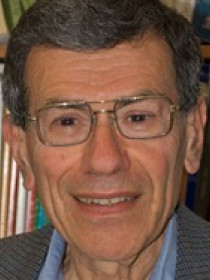
Sheldon Goldman
Connect with Sheldon
About Sheldon
For the last several decades Goldman’s research has focused on the backgrounds of lower federal court judges and the politics of judicial selection and confirmation. The judges that have commanded his attention are lifetime appointees to the federal district courts and appeals courts of general jurisdiction (the eleven numbered circuits and the U. S. Court of Appeals for the District of Columbia). Federal courts and judges are significant shapers of public policy as they interpret and apply both statutory and particularly constitutional law. Political Science research, including Goldman’s own, has demonstrated that not only Supreme Court justices but also lower federal court judges help shape public policy in many significant areas of public law including racial and gender equality, the civil rights of gays including same sex marriage, privacy rights spanning a woman’s right to make medical decisions concerning her body including termination of pregnancy to protections from the excesses of the surveillance state, the scope of government regulation of the economy and providing for social and economic welfare. Goldman also teaches and has published in the area of constitutional law and civil liberties. His civic involvement is primarily indirect, and involves talking with the media and occasionally providing data to government officials including Supreme Court justices.